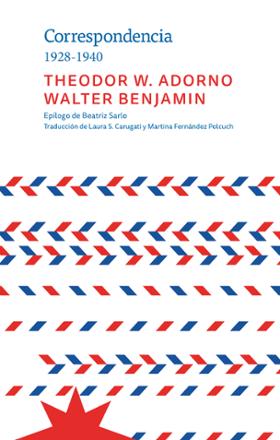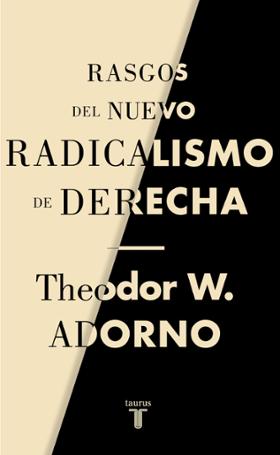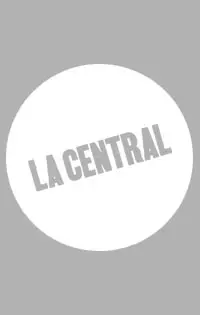History and Freedom : Lectures 1964-1965

History and Freedom : Lectures 1964-1965
Sense existències ara
Rep-lo a casa en 2 / 3 dies per Missatger o Eco Enviament*Contents:
* Contents
* History
* LECTURE ONE: Progress or Regression? * Notes: the relationship of the lectures to Negative Dialectics; the concept of freedom in Kant and Hegel; the diminshing consciousness of freedom; the meaning of history refuted by Auschwitz; the philosophy of history implies that there is a meaning; cultural morphology (Spengler) and idealism
* LECTURE TWO: Universal and Particular * Trend and individual fact ? Distance from and closeness to detail; progress as a particular ? Rationality as a universal; rationality as the mastering of nature ? The concept of universal history; rationality as a form of conflict; `Faustian technology´ and modes of production ? Hegel´s concept of spirit [Geist]; spirit and technical rationality; spirit not primary, but a product ? The immediate experience of the universal and the universal itself denounced as metaphysics; negativity as a universal
* LECTURE THREE: Constitution Problems * The truth of facts ? Immediacy and mediation; individuality and the `untrue´ universal ? Simmel´s philosophy of history; the problem of constitution (I) ? The problem of constitution (II) ? De Maistre; the grounds of knowledge and grounds of reality ? Hegel´s `world spirit´ and the spirit of the age ? The logic of things and heteronomy
* LECTURE FOUR: The Concept of Mediation * Facts as a cloak ? The experience of the speculative; experience of committees ? Formal sociology; group opinion and social totality ? French Revolution (I) ? French Revolution (II); underlying cause and proximate cause : course of history and individual moment ? French Revolution (III); primacy of the course of history: `economy based on expenditure´ instead of `economy based on acquisition´ ; the theory of historical categories
* LECTURE FIVE: The Totality on the Road to Self-Realization * Philosophy of history and historiography ? Parti pris for the universal ? Hegel´s class standpoint ? In defence of Hegel ? Reason as unreason; individual interest and species; humanity: `public company for the exploitation of nature´ ? Conflict in the concept of reason ? The odious totality
* LECTURE SIX: Conflict and Survival * Ambivalence of totality; Marx´s optimistic view of history ? Conflict and totality ? Theodicy of conflict ? Conflict and the reproduction of life ? Conflict and prehistory; the economy or relations of domination ? Contemplative and revolutionary conceptions of history; the problem of anarchism ? Defence of non-conformism
* LECTURE SEVEN: Spirit and the Course of the World * The concept of conformism ? Critique of the hypostasization of concepts; the concept of reason; the irrationality of reason ? Law and `emotional warmth´ in Hegel; universality in the particular ? The course of the world and individual conscience; µefe??? of the spirit ?- Theodicy of rupture and concrete possibility
* LECTURE EIGHT: Psychology * The concept of the charackter mask ? Individuation and socialization ? Identity and the semblance of reconciliation ? `Sowing one´s wild oats´ ? Intellectual forms of self-preservation and human breakdown; identification with the aggressor ? Acquiescing in self-destruction; concretism; psychology as cement
* LECTURE NINE: The Critique of Universal History * The course of the argument ? The concept of universal history (I) ? The concept of universal history (II) ? False mastery and vindication of induction; Hegel´s theory of history ? Freedom and the individual in Hegel ? The individuality in antiquity and the early modern age ? History from the standpoint of the victor
* LECTURE TEN: `Negative´ Universal History * Benjamin´s XVIIth thesis ? Temporal core and non-identity ? Continuity and discontinuity ? History as a gigantic exchange relationship ? The total state and the rule of competing cliques ? Dialectic of the particular ? The concept of chance; the utopia of knowledge ? Hegel´s critique of the totality; course of the argument
* LECTURE ELEVEN: The Nation and the Spirit of the People in Hegel * Notes: Spirit of the people and universal spirit; universal history as universal tribunal; pseudo-concreteness; repressive archaisms; anti-Cartesian elements in Vico, Montesquieu, Herder and Hegel; cult of the nation
* LECTURE TWELVE: The Principle of Nationality * The nation: a bourgeois form of organization, departure from natural forms of association ? The path to delusions of race ? Progressive aspects of the nation ? The principle of nationality and natural history ?The equality of the organization of life today ? Hegel´s theory of national spirit obsolete; decentralization through technology ? Germany `the belated nation´ ? Predominance of the universal over the individual; objective reason split off from subjective reason ? `Infernal machine´; natural history in Hegel
* LECTURE THIRTEEN: The History of Nature (I) * Notes: Nature and history; history as spirit; the history of nature as a critical concept; Marx, the ironical Social Darwinist; mythical nature of history; first and second nature
* LECTURE FOURTEEN: The History of Nature (II) * The concept of second nature ? Nature and history mediated ? Critique of `historicity´; meaning and chance ? Philosophy as interpretation (I); transience and allegory; philosophy´s transition to the concrete; history as secularized metaphysics ? Philosophy as interpretation (II); hermeneutics ? Practice thwarted; critique of the metaphysics of time
* Progress * LECTURE FIFTEEN: On Interpretation: the Concept of Progress (I) * The history of nature, allegory, criticism ? Secularized melancholy; theory of interpretation; Hölderlin´s `Der Winkel von Hardt´ ? Immediacy as the product of history; Hegel and Marx; art ? The pleasures of interpretation ? The concept of progress as a link between philosophy of history and the theory of freedom ? Critique of nominalism ? `Whether progress exists´
* LECTURE SIXTEEN: On Interpretation: the Concept of Progress (II) * Towards conceptual synthesis ? Progress as a way of averting catastrophe; the global social subject ? Kant´s idea of humanity ? Benjamin´s critique of progress ? Progress and redemption in St. Augustine ? Escaping the trammels of the past ? Progress mediated by society ? Reconciliation and conflict in Kant; progress as absolutely mythical and anti-mythical
* LECTURE SEVENTEEN: On Interpretation: the Concept of Progress (III) * Art nouveau, Ibsen ? Decadence and utopia; bourgeois coldness and privileged happiness; dialectics of individuation ? Decadence and the defamation of sex; art nouveau and expresssionism ? The domination of nature and the flowering of reason; Kant and Hegel´s concepts of reason; myth and de-mythologization in one ? The idea of progress in the eighteenth and nineteenth centuries ? Two concepts of progress ? The dialectics of inwardness; critique of the decisionism of existentialist spontaneity ? Spirit as the repository of progress
* LECTURE EIGHTEEN: On Interpretation: the Concept of Progress (IV) * Static elements of the spirit ? Progress and mastery of material ? Philosophical progress ? Programme of reflection on the nature of philosophy ? The concept of exchange; exchange and myth ? Correcting progress ? Pro domo * Freedom * The concepts of freedom and the spell; concentration on free will; freedom as the epitome of resistance to the spell
* LECTURE NINETEEN: Transition to Moral Philosophy * Non-existence of freedom in history ? Individual freedom, social unfreedom ? Freedom as a historical concept ? The possibility of freedom in unfreedom ? The current state of the forces of production ? Reason and freedom ? Model and constellation; free will and interiority
* LECTURE TWENTY: What is Free Will? * Notes: Inside and outside reciprocally mediated; will and freedom not to be hypostasized; on pseudo-problems [Scheinproblem]; will and freedom synthesize individual impulses
* LECTURE TWENTY-ONE: Freedom and Bourgeois Society * Towards a definition of will: the substratum of freedom ? Will as the ordered unity of spontaneous and rational impulses; will and a strong ego; non-ego as model of the ego ? Freedom and emancipation of the bourgeoisie; freedom and psychology ? The scientific impulse versus de-mystification; bourgeois ambivalence ? Theory of freedom as Sunday sermon ? Freedom in the service of oppression; the psychoanalysis of the super-ego
* LECTURE TWENTY-TWO: Freedom in Unfreedom * Freedom as problem and cliché ? Auschwitz as absolute negation of freedom ? Guilt ? Freedom and excessive demands ? `Evil´ as unfreedom ? The ageing of moral categories; society and the individual
* LECTURE TWENTY-THREE: Antinomies of Freedom * The narcissistic interest in freedom ? Conformity as the dark side of freedom ? Impulse, mimesis, irrationality ? Kant´s concept of spontaneity ? Spontaneity as something transcendental ? The dialectics of spontaneity; Marx, Rosa Luxemburg Obsessional neurosis; the ego-alien ego
* LECTURE TWENTY-FOUR: Rationality and the Additional Factor * Freud´s theory of repression; blindness of the ego ? Ideology of inwardness ? The `sphere of absolute origins´ and the subject ? Critique of the experimenta crucis ? Kant´s `gallows in front of the house´ ? Kant´s cardsharp ? Apriorism or the empirical as determining factor; the construction of the intelligible character
* LECTURE TWENTY-FIVE: Consciousness and Impulse * Consciousness versus causality ? Without consciousness, no will ? Hamlet (I) ? The medieval ordo: critique of Romanticism; Hamlet (II) ? Hamlet (III); the additional or the irrational factor ? The archaic element of the will ? The archaic transformed ? Reason and impulse
* LECTURE TWENTY-SIX: Kant´s Theory of Free Will * Evidence of impulse ? The problem of theory and practice in Kant; lectures as a genre ? Kant´s historicization of reflections on the moral law ? Freedom as the determinate negation of unfreedom; Kant´s doctrine of freedom as fiction ? Freedom a paradox in Kant; natura naturans and natura naturata ? Kant´s `borrowed´ ideas of goodness; mediation repressive in Kant ? Freedom as consciousness of the law
* LECTURE TWENTY-SEVEN: Will and Reason * The dual character of Kant´s concept of reason ? The ontologizing of the will in Kant ? Kant´s false definition of will ? Defence of formalism, misuse of the concrete; Scheler ? The concept of character ? Character and the `dissolute´ [Aufgelöste] ? Will and reason
* LECTURE TWENTY-EIGHT: Moral Uncertainties * Ontological validity and ontic genesis mediated ? Voluntarist and intellectual elements ? Morality as self-evident; good and evil ? Will and violence; no moral certainty ? Solidarity and heteronomy in matters of conscience ? Universal and individual in moral philosophy ? Free and unfree ? Lectures on `Metaphysics´
* Editor´s Notes
* Editor´s Afterword




















